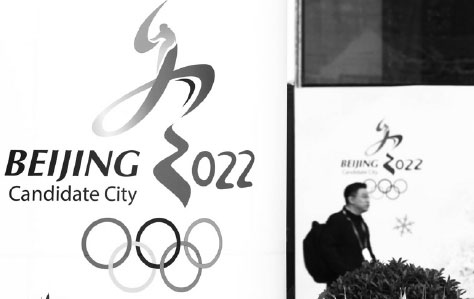Olympic Games expected to bring wave of innovation
As many Chinese people celebrate Beijing's recent winning of the bid to host the 2022 Winter Olympic Games, they still remember the fanfare and fireworks of the Summer Olympics held in the capital seven years ago.
Experts say the Olympic Games are not only a gala of sports, but also bring about a wave of innovation and intellectual property inventions.
In the 2008 Olympics, the torch and cauldron integrated many invention and design patents. The main venue, commonly known as the Bird's Nest, used home-developed Q460 steel, the strongest of its kind. TD-SCDMA technology, one of three internationally recognized 3G standards, provided telecommunications during the Games.
"These examples were typical demand-driven innovation," Liu Haibo, a researcher at the Chinese Academy of Sciences, told China Intellectual Property News. "Major events like the Olympic Games demand a great deal of innovation, and the innovative results and the innovators' capacity are displayed by satisfying those demands.
"Such demand-driven innovations will help the innovators expand the market and promote their products, and drive socioeconomic development. Intellectual property has played an important role in the process."
Lai Xiaopeng, head of the intellectual property rights research institute of the China University of Political Science and Law, said large international sports events provide opportunities for technical innovation, which needs IP protection. IP protection and management systems would further encourage innovation to boost national development.
China's State Council released an outline for a national intellectual property strategy two months before the 2008 Olympics, calling for improved capacity in IP creation, use, protection and management.
"The development of Winter Olympics products will involve many intellectual properties that are different from the Summer Olympics," Liu said. "Many technologies, such as the mobile Internet, big data and artificial intelligence, which were immature in 2008, will be popular in 2022 and become challenges to current IP protection models.
"China has accumulated much experience of IP protection during the Summer Olympics, which will play an active role in the Winter Olympics," Liu said. "China will have proper IP strategies in 2022 that agree with the characteristics of the Winter Olympics and the national development level at that time."
Officials from the Chinese bid committee for the 2022 Winter Olympic Games said China has been well-equipped with IP protection mechanisms that will provide effective protection for Olympics-related intellectual properties.
The committee has issued announcements to protect its logo and the bid logo, and has registered copyrights for the songs for the bid.
As Beijing's partner city in the bid for the 2022 Winter Olympics, Zhangjiakou in Hebei province is a beneficiary of technology transfer, Liu said.
A century ago, the Imperial Peking-Kalgan Railway, the nation's first railway designed and constructed by Chinese engineers, linked the two cities. It stopped service last year and will be replaced by the Beijing-Zhangjiakou Intercity Railway, which is scheduled to be completed in 2018.
"It requires convenient transportation for the two cities to jointly host the Olympics, which therefore promotes the construction of the high-speed railway system," said Li Shunde, an IP expert and head of the Department of Law at the University of Chinese Academy of Sciences.
"The new railway will create opportunities for economic development and the cities' comprehensive competitiveness, and pollution treatment technologies will lead to industrial restructuring," he said. "The moves echo China's current development strategies.
"Major events cannot be held without technical innovation, and new technologies cannot be promoted without IP protection."
He said the 2008 Beijing Olympic Games advanced both innovation and IP business in China, and winning the bid for the 2022 Winter Olympics shows the world's recognition of the nation's technological development and IP protection systems.
zhangzhao@chinadaily.com.cn
|
A pedestrian walks past Beijing's 2022 Winter Olympics bid logos. Chinese officials said Olympics-related intellectual property will be well protected.Song Jiayin / For China Daily |

(China Daily 08/12/2015 page17)









